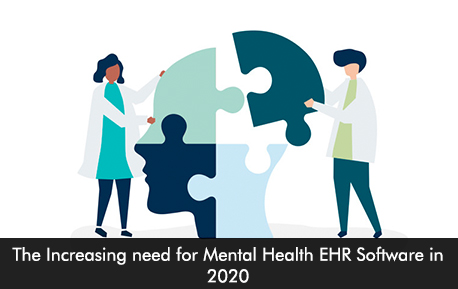Behavioral health or mental health is gaining importance by being recognized as one of the main areas of healthcare. Gone are the days when seeking mental healthcare was seen as a stigma by people, governments are also supporting the behavioral health industry and encouraging patients to seek treatment before conditions get out of health and hurt an individual’s health.
Mental health conditions include the following,
- Anxiety disorders and phobias
- Eating disorders
- Depression
- Personality disorders
- Post-traumatic stress disorders
COVID-19 being in full swing, people are facing more and more mental health disorders due to a sudden shift in routine including social distancing and erratic job conditions. The industry is growing at a booming rate and research reveals that 1 in 5 American adults suffer from a certain mental health problem. This suggests that 40 million patients need a behavioral health specialist for therapy. However, only 40% of the affected patients can seek mental healthcare services because hospitals are overburdened with patients and business models of hospitals and clinics are not up to the mark to provide the best mental health care to patients.
The demand will continue to increase in the years to come and providers need to find out a way to keep up with the growth. By effectively deploying a robust mental health EMR software solution mental health providers and therapists can maintain productivity at their clinic and also enhance the overall care delivery to satisfy patients.
The benefits of using a mental health EHR software system
Mental and Behavioral Health EMR software has powerful tools and features which facilitate the practice to grow and promote quality patient care. Here are the major advantages of installing behavioral health EMR software.
- Enhances prescribing – By using specialty-specific mental health EHR software providers can easily access a specialized list of prescriptions that focuses on the core conditions of mental health patients. The prescribing functionality in your Electronic Health Records software simplifies the prescribing process by streamlining the way how providers prescribe medications.
- Supports care coordination – A mental health EMR software enables the therapist to easily connect with other providers and general physicians to discuss patient conditions to come out with the best treatment plan. Improved care coordination helps to deliver the best patient care.
- Increased efficiency – Patient data is stored and can be retrieved whenever it is required by the provider. The therapy software also has features of online scheduling, charting, and digital patient intake which improves administrative efficiency reducing the burden from staff members.
- Integrated billing – Handling billing and financial procedures can keep small practice set-ups overwhelmed and stressed. A good mental health EHR software offers billing integration which helps to automate financial tasks and handles end-to-end billing procedures. Integrated billing takes care of insurance verification and claims processing to maintain your practice’s financial stability.
- Accurate data – Providers have noticed accuracy in data when utilizing a mental health software system. All data can be updated easily by patients and providers have access to patient data and histories that is precise to support the best treatment and hence improve patient outcome levels.
Moving ahead
A mental health EMR software helps your practice to stay competitive. Automation features help to streamline daily tasks which allow the practitioner to focus on what they love to do that is caring for their patient and keep them satisfied throughout their treatment journey. You must choose the right behavioral health EHR software which allows seamless integration options, ease of use, HIPAA Compliant platform, and functionality to keep your mental health practice on the top.







